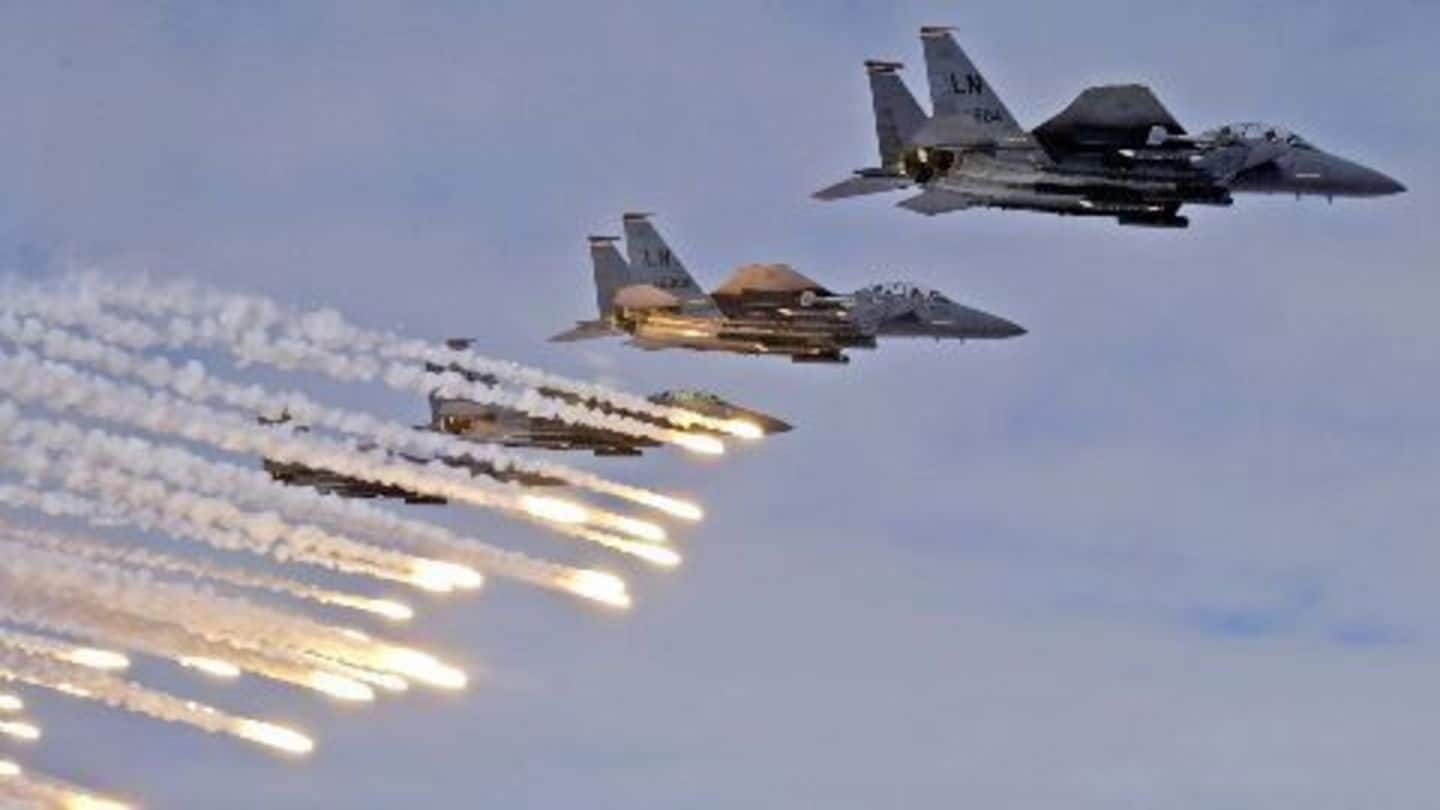
ISIS finance chief Abu Saleh killed: US
What's the story
Washington has confirmed that the finance chief of the ISIS, Abu Saleh was killed in coalition air-strikes last month. According to the US Muwaffaq Mustafa Muhammad al-Karmush alias Abu Saleh is a 42-year-old Iraqi and was the 'finance minister' of ISIS. Sources added that two other high ranking members of the organization's financial wing were also killed in air-strikes in November.
2004
The beginning
Abu Musab Al-Zarqawi established the Sunni organization Al-Qaeda in Iraq (AQI) in 2004 to combat US forces. Al Zarqawi successfully launched several campaigns against the US but also began attacks on Iraq's Shia majority in an attempt to create a broader sectarian conflict in the region. He was killed in a US air-strike in Iraq in 2006 and was replaced by Abu- Ayyub Al-Masri.
2006
The Islamic State in Iraq
The AQI's sectarian conflict in Iraq was widely opposed by both Shia's and Sunni's. Faced by pressure from US troops as well as Sunni tribesmen, the Al-Masri established the Islamic State in Iraq in 2006 in an attempt to regain local support. Al-Masri was killed in an air-strike by US forces in 2010 and Abu Bakr Al-Baghdadi was chosen to lead the ISI.
2013
The creation of ISIS
Under Al-Baghdadi, the ISI began large scale operations against US forces in Iraq. By 2013, it also set up the Al-Nusra front to battle President Assad's forces in Syria. In April 2013, Baghdadi announced the merger of Al Nusra and ISI to form the Islamic State of Iraq and Syria. The move was widely opposed by the Al Qaeda which disowned ISIS in 2014.
Information
What is ISIS's objective?
The ISIS aims to create a 'Caliphate', or a state ruled under Islamic law, also known as Sharia, extending from West Asia to India, China, North Africa and parts of Europe.
Post-2013
The current state of ISIS
In June 2014, ISIS declared the establishment of a Caliphate, the Islamic State, and declared Al-Baghdadi as the Caliph or spiritual leader. In February 2015, US Director for National Intelligence, James Clapper said IS could muster "somewhere in the range between 20,000 and 32,000 fighters" in Iraq and Syria. Rumors surfaced that Baghdadi was killed in October but the group has denied these allegations.
Personal
Most IS fighters not Iraqi or Syrian
In October 2015, the Director of the US National Counter-terrorism Center estimated that ISIS had atleast 28,000 foreign fighters primarily from Tunisia, Saudi Arabia and Russia.
Attacks
Significant ISIS attacks across the world
In June 2015, ISIS claimed responsibility for an attack on tourist spots in Tunisia that killed over 40 tourists and locals. They also claimed responsibility for bomb attacks on a Shia Mosque in Kuwait that month which killed 30 people and injured over 200. The Paris attacks in November 2015 were also claimed by the ISIS which killed over 130 people.